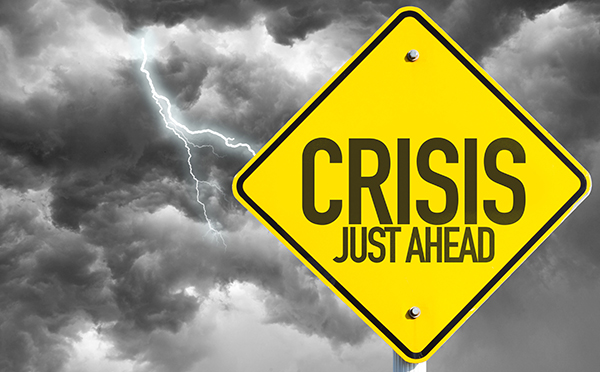Are you an armchair social media commentator?
An expert on everything with plenty to say?
If you aren’t, chances are you know someone who is.
You may even have one (or more) on staff in your organisation – now there is a scary thought!
Employees gone rogue on social media isn’t a new phenomena. Time and again we see organisations unable or unwilling to reign in their employees as internal issues ignite into full blown clickbait crises complete with their own hashtag, Wikipedia page and running social commentary from the twitter peanut gallery.
The unfortunate reality is that organisations become collateral damage in the ensuing employee generated crisis.
When your employee is the cause of your crisis – you need to have the governance structure in place to manage that employee appropriately so that you can get back to business.
Understanding the clickbait crises paradigm
To understand how clickbait crises can effect your organisation, let’s do a quick poll:
Where do you consume your news?
- I get it home delivered every morning and my dog goes out to pick the paper up from the front yard.
- I listen to the radio during the day or watch the nightly news on television.
- I pick up my phone to turn my alarm off in the morning and read the headlines on a news website.
- I get my news as I scroll through my social media feeds.
I’m going to wager that responses to 3 and 4 are the most popular because we’re a society primed for rapid, short burst message consumption; and the more outlandish, frightening or scandalous the story, the more we click.
The more we click, the more that story gains traction online. Clicking a news report on Facebook or LinkedIn for example will then cascade through to your friends and connections newsfeeds.
That’s right: the media sell news and clickbait headlines make them a lot of money. The higher the story’s virality, the more profitable it becomes which in turn makes your organisational crisis more intense.
No – you don’t need to become the social media police to pre-emptively protect your reputation
Employees have rights … right?
Sure. They have the right to attend a safe workplace and to be paid for the work they do. And yes — they have a right to privacy, however they can’t argue a right privacy after a media outlet publishes objectionable photographs or commentary from any one of their public social media accounts.
Employers have rights too.
Here are my top 7 tips for employers to protect their reputation from rogue employees:
- Have a robust social media policy.
- Enforce that policy consistently.
- Educate your workforce on the nuances of that policy.
- Monitor what is being said about your organisation online in real time.
- Lead by example on and offline: remembering actions speak louder than words.
- Don’t attempt to control the media during a crisis: focus your resources on managing the employee internally in an appropriate manner.
- Engage with the media on your terms, in a timely manner and only when you have an outcome to communicate.
Above all: if you are going to manage out an employee that has access to your organisational social media accounts – be sure to revoke their access BEFORE you take disciplinary action.
Don’t think you need a social media policy?
Any of your employees could create your next organisation crisis just like:
- Jamaican cricket player Chris Gayle
- United States Politician Anthony Weiner
- Prison officer Michael Allred
- Bartender Jessica Harr
- Public relations executive Justine Sacco – #HasJustineLandedYet
ABOUT NICOLE MATEJIC
Nicole is a published author and internationally recognised military information operations specialist. A regular instructor for and speaker to NATO; Nicole is a trusted adviser to Governments around the world in the areas of social media warfare, information operations, countering violent extremism, public diplomacy, strategic and crisis communication. CEO of the civil-military think-do tank Info Ops HQ and Managing Partner of crisis and strategic communications consultancy Quantum CIQ, Nicole is a sought after adviser and keynote speaker with global expertise in navigating crises in a dynamic environments. Her book ‘Social Media Rules of Engagement' was published through Wiley in 2015.
Latest.

AI adoption failing isn’t the tech, it’s the people. How smart businesses overcome this.
Technology, Thought Leadership, Industry Trends

Temp-to-perm is the best way to hire today.
Hiring Insights

How to keep top talent: Strategies for successful onboarding
Hiring Insights, Ask Aquent, Training Resources


